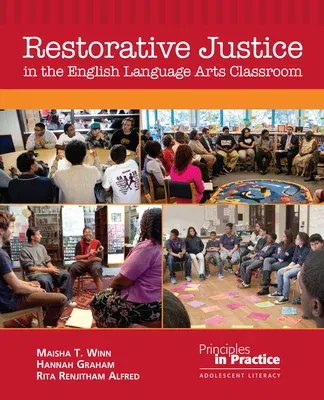How do teachers educate responsibly in an age of mass incarceration?
And why should English teachers in particular concern themselves with
unequal treatment and opportunity and the school-to-prison pipeline?
The authors--teacher educators and a restorative justice
practitioner--address these and other critical questions, examining the
intersection of restorative justice (RJ) and education with a focus on
RJ processes that promote inclusivity and ownership.
This book is a beginning guide for ELA teachers to address harm and
inequities in the classroom, school, community, and nation. Viewing
adolescent literacy, as outlined in Adolescent Literacy: An NCTE Policy
Research Brief, through the lens of restorative justice will help
teachers recognize just how integral practicing empathy and justice is
to developing adolescent literacy.
The authors provide concrete, specific examples of how ELA teachers can
think and plan curriculum using an RJ lens to address issues of student
disconnection and alienation, adult and youth well-being in schools, and
inequity and racial justice through writing, reading, speaking, and
action.
About Principles in Practice
Books in the Principles in Practice imprint offer teachers concrete
illustrations of effective classroom practices based in NCTE research
briefs and policy statements.
Each book discusses the research on a specific topic, links the research
to an NCTE brief or policy statement, and then demonstrates how those
principles come alive in practice: by showcasing actual classroom
practices that demonstrate the policies in action; by talking about
research in practical, teacher-friendly language; and by offering
teachers possibilities for rethinking their own practices in light of
the ideas presented in the books.

